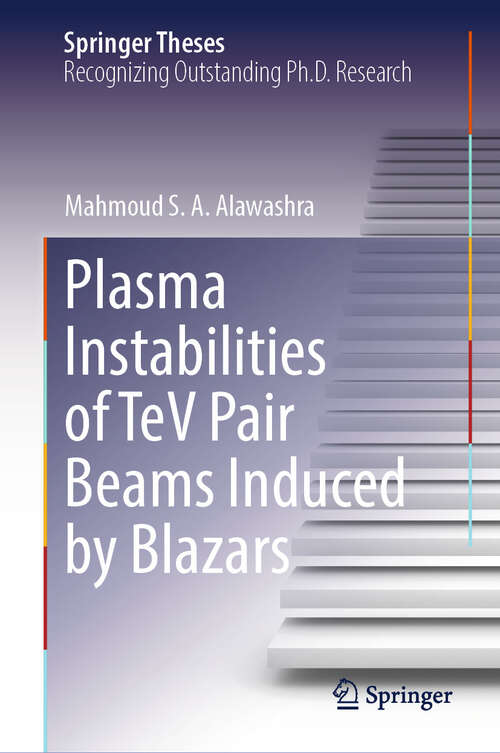Plasma Instabilities of TeV Pair Beams Induced by Blazars (Springer Theses)
By:
Sign Up Now!
Already a Member? Log In
You must be logged into Bookshare to access this title.
Learn about membership options,
or view our freely available titles.
- Synopsis
- This thesis develops a new theory combining the beam-plasma instability and IGMF in one picture. Recently, it was observed that the expected cascade emission of gamma rays in the TeV range from some distant blazars is not seen in their spectra. The underlying physical processes are well known, and a failure of the model predictions would shake the foundations of modern physics unless a credible explanation for this failure is found. One could argue that a femto-Gauss strong magnetic field in the cosmic voids would disperse the cascade emission, although the question remains as to how this magnetic field was generated. Mahmoud Alawashra provides us with a carefully crafted assessment of a second possibility, namely, energy loss due to plasma instabilities in the cosmic voids. His first point is: what if there is a weak magnetic field? It might not dilute the cascade emission but suppress the beam-plasma instabilities, ruling out an intermediate range of magnetic field amplitudes where neither scenario works. Mahmoud&’s study is the first in the literature to combine instability and IGMF in one picture. Authors then investigated the nonlinear feedback of the instability and finds it in a quasi-steady state where the energy loss of the cascades is weak. The whole study is simply outstanding and combines analytical skills with numerical ability.
- Copyright:
- 2025
Book Details
- Book Quality:
- Publisher Quality
- ISBN-13:
- 9783031985683
- Related ISBNs:
- 9783031985676
- Publisher:
- Springer Nature Switzerland
- Date of Addition:
- 09/27/25
- Copyrighted By:
- The Editor
- Adult content:
- No
- Language:
- English
- Has Image Descriptions:
- No
- Categories:
- Nonfiction, Science
- Submitted By:
- Bookshare Staff
- Usage Restrictions:
- This is a copyrighted book.
